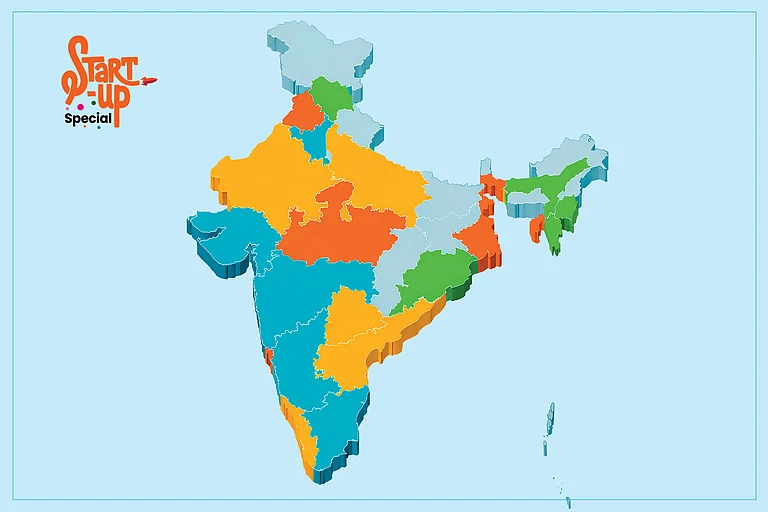One development that was relatively unnoticed this week was the government's introduction of new regulatory changes for companies involved in mergers and acquisitions. These rules were initially proposed as part of the 2023 Competition Act amendment.
Since then, lots of conversations have been held about how these new rules will impact mergers regarding start-ups. While some believe that this regulation might delay the merger process for start-ups, others feel that it won’t have much of an impact.
The new amendments talk about deal value thresholds (DVT), reductions in timelines and more.
Experts highlight that the authorities felt that not so small transactions were falling off the radar and were not getting the scrutiny they deserved, which made them come up with the new regulations.
“They believe that this way, they will be able to prevent certain market abuses. A key aspect is that certain sectors or segments, especially those involving start-ups, have become oligopolistic,” says Jayesh H., co-founder of Juris Corp Advocates and Solicitors.
Amendments in the Competition Act
Among the key amendments in the act, one is the introduction of DVT. Now, transactions where the deal value is more than Rs 2000 crore will need the mandate of the CCI.
The notification by the CCI further says that when the target entity has "substantial business operations in India," they will need clearance from the commission. Experts highlight a global concern that merger reviews based solely on the size of the parties have failed to catch “killer acquisitions,” where the target’s assets or turnover fall below the set thresholds. As a result, the government introduced the concept of DVT.
Speaking about the intent of the government to bring the deal threshold, Parthsarathi Jha, Partner, Economic Laws Practice, says, “The intent behind the introduction of the DVT-based merger control regime is to capture these so-called ‘killer acquisitions’ that previously escaped scrutiny. That said, this approach and its efficacy are hugely contested.”
The rule also mentions that the CCI will reduce the timeline for the approval of the merger from 210 to 150 days. Further, the CCI also defines the concept of sustainable business operations in India. As per the watchdog, three main factors are used to assess whether a company has SBO in India. This includes the number of users, subscribers, customers, or visitors, gross merchandise value (GMV) and turnover. For example, if the gross merchandise value or turnover of the company exceeds Rs 500 crore in the relevant financial period, then it warrants regulation.
The Ministry of Corporate Affairs has been working on amending rules related to mergers and acquisitions for a long time. In July 2019, a ‘Report of Competition Law Review Committee’ was released by the government, where it was mentioned, “The effectiveness of competition law in accomplishing its primary functions of promoting competitive growth and enhancing consumer welfare needs to be examined in light of the upcoming challenges of the next decade.”
Interestingly, one important component of the deal is that there is no time for transition. Thus, even those deals that are not closed yet but were announced before the implementation of the new rule in September 10 will also get approvals. Speaking about the lack of transition relief, Jayesh says, “This omission and the timing make you wonder whether there is an immediate trigger, as in a transaction that the authorities want to scrutinise closely.”
Now, the question is, how will the new rules impact start-ups?
Will Reverse Flipping be Affected?
Speaking about how the new rules might affect startups, some experts feel that they won’t have a direct impact on them. “Start-Up’s struggling to sustain and looking at being acquired as a means of recouping some of the investment made into them by their investors may face some hurdles. But then how many struggling start-ups will anyway command a sale value higher than the new thresholds?” asks Jayesh.
With reverse flip becoming a well-established conventional norm in India, the question that hangs is, how will this new rule affect the process of reverse flipping? The concept of reverse flipping refers to Indian start-ups that are shifting their domicile back to India. Some examples of the same include Zerodha, PhonePe, Grow, PineLabs and more. Several factors, such as attractive market conditions and a fast-growing venture capital ecosystem, are some of the reasons that prompt start-ups to reverse flip.
Some experts feel that whether there will be an effect on start-ups doing reverse flipping requires a case-by-case analysis. “Start-ups will have to continue to assess notification requirements based on the deal value or size (i.e., assets/turnover) of the parties involved and if the reverse-flipping meets any exemption criteria. Depending on the structure finalised, a notification under the Competition Act may be required to be provided to the CCI,” says Parthsarathi Jha, Partner, Economic Laws Practice.
Other experts highlight that the new rules will add regulatory scrutiny to start-ups. Jayesh says that requiring RBI process will slow down the process. He says, “The RBI permission for reverse merger can definitely impact some of the so-called start-ups, which when they flipped out of India were start-ups and have now become mature businesses and are looking to reincorporate in India by a reverse merger.”
M&A has been on the rise in India. For instance, Deloitte reported a 72 percent increase in deal volumes in 2023 compared to the previous year. Additionally, according to S&P Global, India led the Asia-Pacific region in M&A activity during Q1 2024, with 27 deals completed. This was more than 13 deals filed by Japan, Australia's 12, and 11 in South Korea. Some of the important mergers that happened in India are the Reliance-Disney merger, Walmart's acquisition of Flipkart, the merger between Vodafone India and Idea Cellular, and more. In the rapidly competitive Indian landscape, it will be interesting to observe how it affects companies.
































